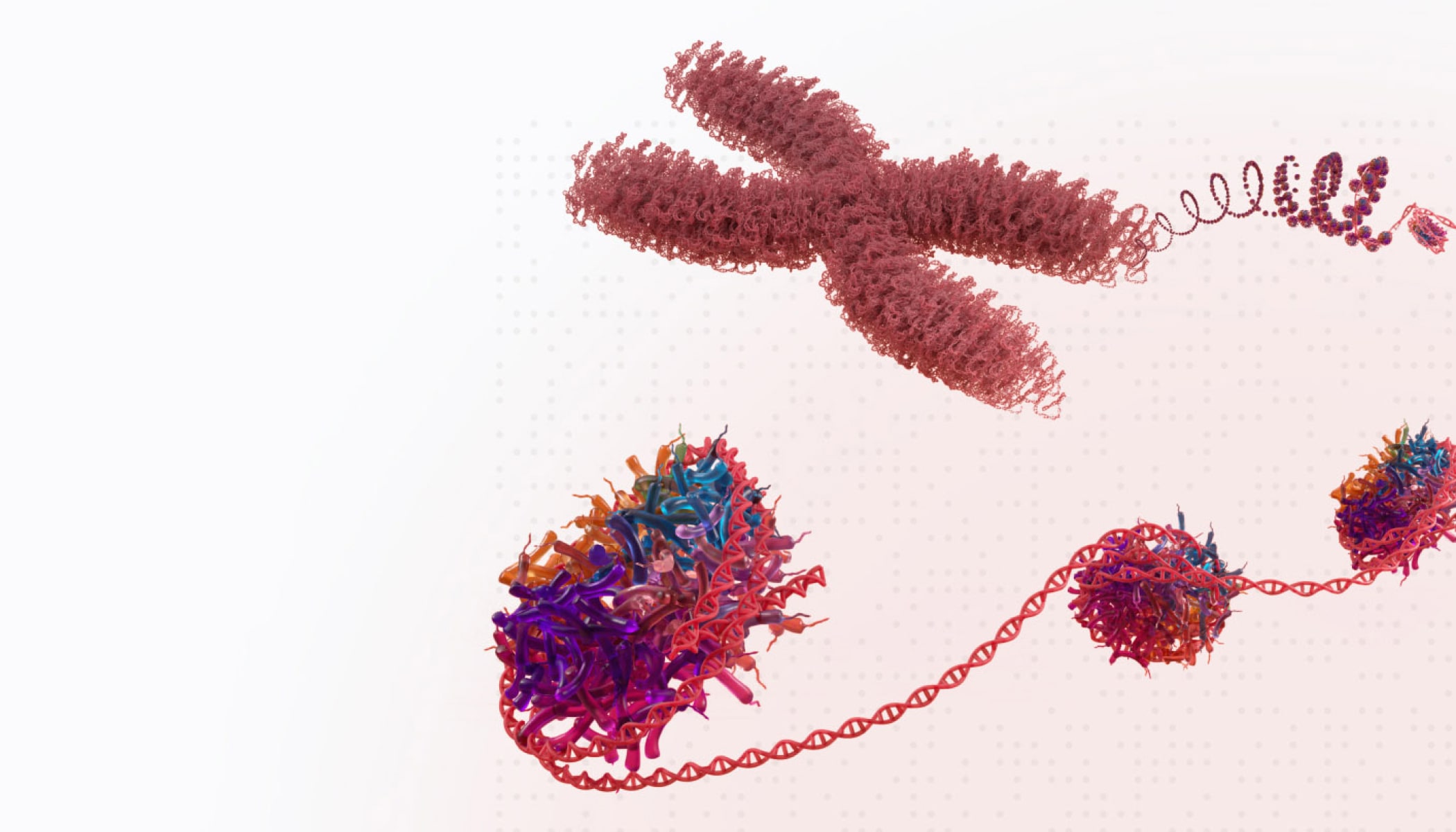Pioneering New Science Nucleosomics Advances Blood Based Diagnostics for Cancer
VolitionRX now calling for key partners and collaborators to bolster large scale clinical validation
LONDON, March 27, 2012 /PRNewswire/ -- The ability to diagnose disease early has long been a goal in the medical arena. VolitionRX (VNRX.OB), a life sciences company, is pioneering scientific research into simple, cost-effective tools capable of diagnosing the early presence of disease via a blood test.
(Photo: http://photos.prnewswire.com/prnh/20120327/NY77344 )
VolitionRX is developing its Nucleosomics™ technology to measure and identify the signatures of nucleosomes (a protein component of a chromosome containing a short length of DNA) that are released into the blood as cells die, with the aim of detecting early stage diseases which are characterized by high cell turnover, such as cancer.
How it works?
The DNA in every cell is wound around protein complexes in a "beads on a string" structure. Each individual "bead" is called a nucleosome. When a cell dies, the links between the nucleosomes are broken down and individual nucleosomes are released into the blood to be naturally "recycled".
It has been known for more than a decade that high levels of nucleosomes are released into the blood stream as a result of the cell death associated with certain diseases including cancer, and additionally that the structure of nucleosomes is altered in the chromosomes of cancer cells.
Nucleosomics combines these findings to detect the amount and types of nucleosomes present in the blood.
Cancer is often characterised by rapid cell growth and turnover. The body is unable to recycle such large numbers of nucleosomes, resulting in a high level of nucleosomes remaining present in the patient's blood.
VolitionRX is in the process of developing a number of Nucleosomics™ tests for different types of nucleosomes and has conducted small pilot studies to investigate whether these nucleosomes are present in the blood of cancer patients and whether cancer nucleosomes are different to nucleosomes from healthy cells.
How will it be used?
VolitionRX is pioneering Nucleosomics as an advanced diagnostic technology to:
1. Measure the total number of nucleosomes in the blood
2. Detect the nucleosome patterns that are specific to cancer
Chief Scientific Officer, Jake Micallef, advises that preliminary studies of VolitionRX's Nucleosomics technology have provided positive data, spurring further development and progression to large-scale clinical studies to support its revolutionary diagnostic blood tests. "Early stage results from our laboratory have exceeded our expectations, and we hope to see equally positive results in larger scale retrospective clinical studies and prospective clinical studies currently in the pipeline."
As a pioneer in the development of revolutionary blood based diagnostics, VolitionRX recognises the urgent and unmet need in the cancer diagnostic market. Inevitably, the chances of surviving cancer are greatly improved by early detection and diagnosis.
VolitionRX is now looking for clinical partners to help validate this data through large scale clinical studies and ensure development of a blood based diagnostic for cancer is evolved as quickly as possible.
For more information about Nucleosomics plus a video about how it works please visit: http://www.volitionrx.com/nucleosomics.html
About VolitionRX:
VolitionRX is a life sciences company focused on the development of diagnostic blood tests.
VolitionRX products are based on a unique and proprietary technology platform, Nucleosomics™, which enables the measurement and identification of nucleosomes in the blood, using simple, inexpensive blood tests.
VolitionRX is headquartered in Singapore with a research and development centre in Belgium. With 20 highly skilled team members worldwide, all VolitionRX employees have extensive experience in diagnostics or commercialization.
About Cancer:
Almost everyone in the world has been, or will be, touched by the effects of cancer. It is one of the world's most deadly diseases, accounting for approximately 13% of annual global deaths. However, many cancers are currently diagnosed late when the cancer is already well established and may have spread beyond the primary tumour, partly due to inadequate current diagnostic products.
Current cancer diagnostics tests include:
- chest scan for lung cancer
- test for blood in faeces for colorectal cancer
- tube-mounted camera inserted into passage way to look for tumours (endoscopy, colonoscopy)
- protein markers, such as the PSA for prostate cancer
These tests are either expensive and invasive or qualitative and interpretative, rather than quantitative and exact.
Background Scientific Information
Examples of articles for an overview of the elevated levels of nucleosomes circulating in the blood of patients with cancer and other diseases*, as well as on the alterations that occur to the histone structure of nucleosomes and chromosomes in cancer**, include:
* "Nucleosomes in serum of patients with benign and malignant diseases" published in the International Journal of Cancer, volume 95, pages 114-120 (2001)
** "Histone-onco modifications" published in Oncogene volume 30, pages 3391-3403 (2011)
In addition, VolitionRX holds a total of seven patents and patent applications covering its Nucleosomics™ technologies.
Forward-Looking Statements: Statements in this press release may be "forward-looking statements" within the meaning of the Private Securities Litigation Reform Act of 1995. Words such as "expects," "anticipates," "intends," "plans," "believes," "seeks," "estimates," "optimizing," "potential," "goal," and similar expressions, as they relate to the Company, its business or management, identify forward-looking statements. These statements are based on current expectations, estimates and projections about the Company's business based, in part, on assumptions made by management. These statements are not guarantees of future performance and involve risks, uncertainties and assumptions that are difficult to predict. Actual outcomes and results may, and probably will, differ materially from what is expressed or forecasted in such forward-looking statements due to numerous factors, including those described above and those risks discussed from time to time in the Company's filings with the Securities and Exchange Commission.
SOURCE VolitionRX Limited
Released March 27, 2012
